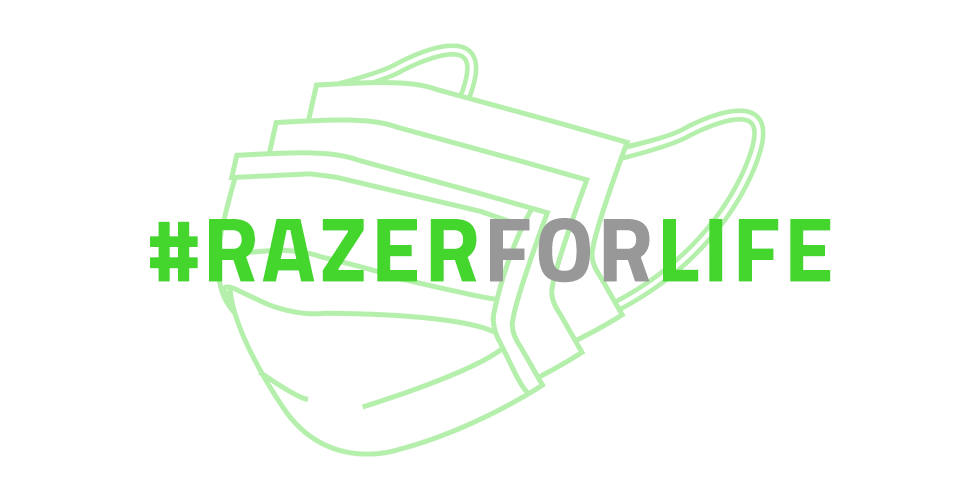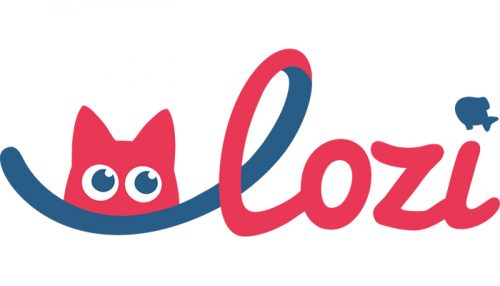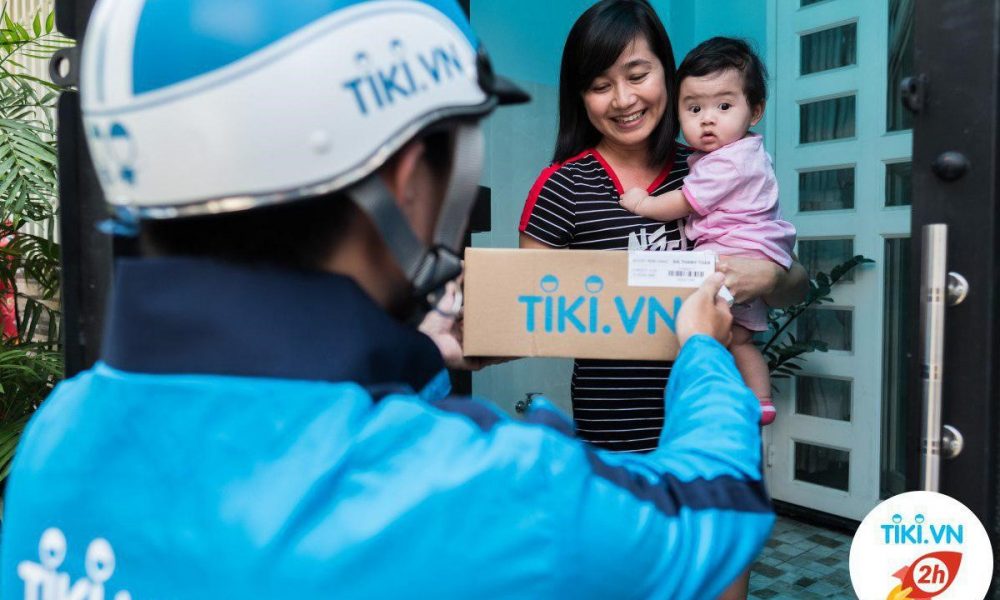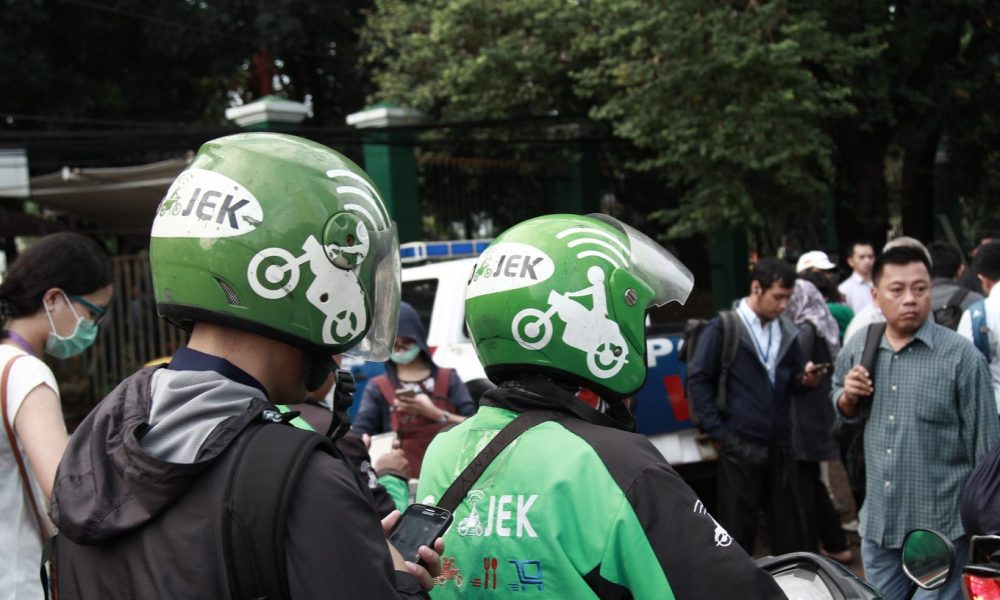Author: vivian
Gaming Unicorn Razer Responds to COVID-19 by Starting Face Mask Production Facility
Razer, the gaming hardware unicorn company that was founded in Singapore, recently announced that its face mask production line, which is fully automated and located in Singapore, is now up and running.
The global COVID-19 pandemic has created an unprecedented crisis that has directly impacted the livelihoods of many people worldwide, and chief executive officer of Razer, Tan Min-Liang has said that the gaming hardware unicorn understands that it has a role to fulfill in fighting the novel coronavirus pandemic. According to Razer, the face masks manufactured by the unicorn company are standard three-layer face masks.
In fact, the gaming unicorn production line and has already started manufacturing fully certified masks that are intended to help fight against the ongoing global COVID-19 pandemic. The face masks are all manufactured in an ISO 13485 certified facility and will meet both domestic and international standards. The facility is expected to produce upwards of five million face masks per month, which can be scaled up as necessary to meet demand.
The establishment of the face mask production facility, which is Singapore’s first-ever fully automated mask manufacturing line, follows an announcement by the unicorn gaming hardware company on April 1, 2020, that it will endeavor to build a fully automated mask production line within this month with the goal of making several million certified face masks per month.
The announcement was made by Tan Min-Liang on his Facebook page whereby the Singaporean entrepreneur urged local and home-grown companies to be the first buyers of its certified face masks as a mark of solidarity against the ongoing novel coronavirus pandemic.
This is not all, the unicorn company has been quite active and engaged in the global fight against the COVID-19 pandemic. Some of Razer’s efforts and contributions include a worldwide donation of upwards of one million face masks to help stop the spread of the novel coronavirus.
In a media statement, the gaming hardware unicorn noted that it was dedicated to establishing a local face mask manufacturing line in Singapore as a response to the dearth of reliable and good quality face masks available on the market, in addition to the fact that Southeast Asia is currently facing a scarcity of protective masks to combat the COVID-19 outbreak.
Razer also mentioned that the efforts by global health agencies and government organizations to equip their citizens with face masks to safeguard themselves has resulted in a substantial increase in the demand for reliable, certified face masks.
At first, the unicorn company had made use of its existing manufacturing lines located in China to produce face masks that are earmarked for donation to provide relief. However, it soon became clear that Razer had to come up with a new solution once requests for the face masks and other personal protective equipment (PPE) began to overwhelm the company due to the severe lack of the masks and protective gear.
Additionally, most of the existing face masks do not satisfy certification standards and are poorly made, thus providing minimal or non-existent protection to users. In contrast, the face masks manufactured by the unicorn company are made to both international and domestic standards in an ISO 13485 certified facility and will be supplied to both the Singaporean and regional markets.
Aspiring Vietnamese Unicorn Lozi on Dealing with the COVID-19 Pandemic
Lozi, the aspiring unicorn startup that operates Vietnam’s e-commerce platform Loship, is no stranger to hardships, but the recent global COVID-19 pandemic has brought an entirely new set of challenges for the tech company to overcome. Nevertheless, the startup continues to soldier on during this time of crisis, and still maintains delivery services for the people of Vietnam during this difficult time. All the while, Lozi has emphasized that the safety and wellbeing of its employees and driver-partners are of utmost importance.
According to Nguyen Hoang Trung, co-founder and chief executive officer of Lozi, the aspiring unicorn is seeing strong demand for laundry, grocery and drug delivery services in Vietnam during the COVID-19 pandemic. In light of the hardships and burdens the people have to shoulder amidst the coronavirus outbreak, which has drastically affected the livelihoods of many Vietnamese, Lozi has decided to waive all shipping fees. Additionally, the startup has introduced several initiatives to improve the lives of their delivery partners due in part to the increase in demand for delivery services and online ordering.
Lozi makes a point of saying that it will not dismiss any of its employees amidst the COVID-19 pandemic. Even when market conditions are volatile, the startup’s first priority is to reassure its workforce that there are no changes to their positions, and no retrenchments. The startup strongly believes that its people are its strongest assets and will not reduce or fire its staff in response to the coronavirus pandemic. In fact, its chief executive officer Mr. Nguyen even stated that the company will continue to work together with its partners and staff to overcome the current crisis, just as how they had worked together in the past to overcome previous challenges and obstacles. While the company has reduced its expenses for marketing and equipment, its personnel will not be affected so that its employees can feel at ease while at work.
In regards to the startup’s delivery driver-partners, Lozi maintains that the safety and protection of its fleet of drivers has always been a top priority even before the emergence of the global pandemic. In order to better protect and ensure the safety of their warriors – as the startup calls their driver-partners – during the coronavirus outbreak, Lozi has provided all of them with free masks, hand sanitizers and regular body temperature checkups whenever they visit the office. In addition, any problems or concerns that the drivers may have are handled by the company’s support personnel in a swift and timely manner. Another measure that the aspiring unicorn has adopted to ensure safety is to suspend cash payments for drivers and to instead pay them online, in order to minimize close physical contact. Meanwhile, drivers who have tested positive for the coronavirus are given financial support by the company so that they can feel financially secure.
Mr. Nguyen also observed that store behavior on their flagship platform Loship has transformed as a result of the ongoing pandemic. While noting that the app has seen a drop in the number of stores still operating on its platform, there are actually many other stores that have seen a spike in the number of daily transactions. He credits this to the fact that certain stores have prepared themselves well for online ordering services, and have a dedicated customer base that continues to seek their services and products even during this time of crisis.
Regarding the aspiring unicorn’s growth prospects for the year 2020, Mr. Nguyen said that the focus of Lozi is on serving their customers well. By satisfying the needs of their customers and ensuring their peace of mind during the COVID-19 outbreak, the company’s growth targets will be achieved naturally as a result. After all, there is no form of marketing more powerful than the recommendation of customers to friends and family about the great services of Lozi.
MarketersMEDIA Offers US$1.5M in PR Credits to Help Startups Manage the Coronavirus Crisis
The tension is very real since the outbreak of the coronavirus pandemic. It has quickly swept our lives, and radically transformed the world and businesses in less than a month; forcing countries to enter into a state of lockdown and the economic downturn changing even large, established companies literally overnight.
We can only imagine the impact it has for smaller businesses and newer ventures that do not have the resources or cash flow to maintain their operations for long periods.
The vast majority of marketers are now putting their marketing on hold to conserve their funds during this financial uncertainty. Almost nine in 10 marketers are now delaying their campaigns in response to COVID-19, according to Marketing Week.
At the same time, press release distribution company MarketersMEDIA stresses that marketing is still, if not more important than ever to remain relevant and competitive.
There will come a time when the coronavirus pandemic is over and the businesses who will come out as winners are businesses that have never stopped their marketing efforts to remain connected with their users and customers.
“We see a need to aid businesses to continue their marketing without having to worry about their costs,” said Daniel Tan, the Founder of MarketersMEDIA. “So when the crisis is all over, businesses can rebound quicker especially if they have remained engaged with their customers throughout the crisis.”
The press release service debuted a marketing aid of US$1.5 million in press release credits to help small and midsize businesses get through COVID-19 with one less expense. Businesses can apply for the initiative to receive a First Tier press release where they can use to reach out to their users and customers to ensure business continuity during the crisis.
A First-Tier press release with MarketersMEDIA will help them get their message to AP News, USA Today, MarketWatch, Comtex, ABC, NBC, FOX, CBS, and over 500 authoritative media outlets in different verticals, in addition to reaching thousands of newsdesk journalists and archival systems.
This can be extremely helpful in times of the lockdown when more and more people are looking and searching for news updates. Using MarketersMEDIA free First Tier press release can also be a great start to building online presence, to apply for this grant, interested businesses can visit: https://www.marketersmedia.com/grant
Aspiring Southeast Asian Unicorns to Watch: A Feature on Vietnam’s Tiki
Tiki, a Vietnamese business-to-consumer e-commerce platform, is one of the major players in Vietnam’s emerging tech ecosystem and poised to capitalize on the country’s fast-growing e-commerce space.
Besides being Southeast Asia’s third most active startup ecosystem, a report published in late 2019 noted that the country has almost 59 million active Internet users and that more than 75% of Vietnamese Internet users in the 16 to 64 age group have already done some form of online shopping.
A separate study also found that approximately 50 million Vietnamese spent a total of US$2.2 billion to purchase consumer goods online for the year 2018, which is a significant improvement from the previous year. Factoring in Vietnam’s e-travel industry which is worth around US$3.5 billion, the country’s overall e-commerce spending for 2018 by its consumers is approximately US$6 billion in 2018. Vietnam’s online and Internet economy is poised to continue experiencing strong growth, as evidenced by the fact that it is among the three fastest expanding online grocery markets globally.
In Vietnam, Tiki is ranked among the top three e-commerce platforms in terms of mobile web use and website traffic with average monthly website visits of 27 million per month, which places it ahead of Alibaba-owned Lazada but falling just short of regional powerhouse Shopee which averages 34 million website visits per month. Tiki is generally considered the local favorite with the most potential and pedigree to take on the two regional titans Lazada and Shopee in the e-commerce space.
Tiki had its beginning in 2010 when its founder and present chief executive officer, Tran Ngoc Thai Son, encountered difficulties when attempting to buy English books in the country and had the noble idea of selling English books online to Vietnamese customers. From its humble origins as an online platform selling only English books, it has since grown to become a national e-commerce platform giant that offers a wide variety of products ranging from home appliances to fashion accessories, to electronics, to books and literature, to motor vehicles, and more, for Vietnam’s consumers.
Some of the noteworthy entities that have made investments in Tiki include Sumitomo Corporation, which is a leading Fortune 500 global investment and trading company, CyberAgent Ventures, a venture capital firm headquartered in Tokyo with a worldwide presence, and VNG Corporation, Vietnam’s first-ever unicorn tech company.
Along with VNG, the Chinese e-commerce platform JD.com led a Series C funding round for Tiki that saw the Vietnamese e-commerce startup raise approximately US$50 million in funds. JD.com is now Tiki’s largest shareholder, demonstrating just how much faith the Chinese e-commerce giant has in Vietnam’s rapidly growing e-commerce space.
Recently in June 2019, Tiki raised around US$100 million from a financing round that was led by Singapore-based private equity firm Northstar Group. Initially projected to raise only US$75 million, the funding round was scaled up due to support from the e-commerce startup’s Korean investors.
As Vietnam’s e-commerce sector continues to grow by leaps and bounds, buoyed by a burgeoning middle class and boom in Internet usage and growth, aspiring unicorn-to-be Tiki will be poised at the forefront of the e-commerce space. As one of the nation’s top three e-commerce platforms, Tiki is well-prepared to become the region’s next unicorn.
Indonesian Unicorn Gojek Imports Face Masks to Help Drivers and Healthcare Providers Battle the COVID-19 Pandemic
Indonesian super app unicorn Gojek, in an effort to help the country combat the spread of the COVID-19 pandemic, has recently acquired permission from Indonesia’s Healthy Ministry and its National Disaster Mitigation Agency (BNPB) to bring in approximately 5 million face masks, which are to be allocated among the nation’s frontline healthcare providers and its driver-partners.
The latest shipment of masks will help to reinforce Gojek’s existing supply of health supplements, hand sanitizers and face masks for its fleet of driver-partners throughout more than eighty cities across the island archipelago nation.
The latest move by Gojek underscores the commitment and dedication that the unicorn company has towards maintaining the safety and well-being of its more than 3,000 employees and a fleet of 1 million drivers, and follows a previous move by the local ride-hailing super app’s senior management of cutting their salaries in order to allot more than US$6.9 million to their workers and driver-partners to deal with the uncertainties and economic upheaval caused by the COVID-19 pandemic.
According to Kevin Aluwi, co-chief executive officer of Gojek, the company strives to look after the welfare of their fleet of drivers and wishes to lighten their burden and help them feel more at ease about their future and day-to-day living during this time of economic uncertainty as a result of the outbreak.
Towards this end, drivers who fall ill due to the coronavirus or who become patients under treatment (PDP) are able to receive financial assistance from not just the unicorn company itself, but also Yayasan Anak Bangsa Kita, its newly formed charity foundation aimed at supporting the financial stability of its fleet of drivers and other partners.
According to a report, Gojek has experienced a more than 10 percent drop among its active ride-hailing users due to the COVID-19 pandemic within the end of March alone.
The distribution of face masks to its driver-partners and the country’s healthcare providers is just one step among many other measures that the unicorn company is adopting to help its employees and partners to combat the spread of the coronavirus and to ensure their safety and well-being.
Besides relaxing vehicle loan repayment requirements for its fleet of driver-partners, Gojek has also provided vouchers to younger drivers to look after their basic needs, while distributing basic necessities and staple goods to older and senior drivers aged more than sixty years old, in order for them to cope with the economic downturn as a result of the coronavirus outbreak.
Garibaldi Thohir, the independent commissioner of Gojek, recently announced that the latest import of face masks for its fleet of drivers is an important measure to make sure that the country’s supply of locally made masks and other medical gear is more than enough for the nation’s frontline healthcare providers and hospitals. The import of masks is a necessary precaution to prevent the spread of COVID-19 as drivers are more at risk of contracting the coronavirus due to their daily interactions of making deliveries to many people.
The super app unicorn Gojek is taking proactive measures to ensure that the welfare of its fleet of driver-partners, both young and old, are well taken care of. As the homegrown company has shown, even in times of crisis the well-being and health of normal employees and workers should not be neglected.





